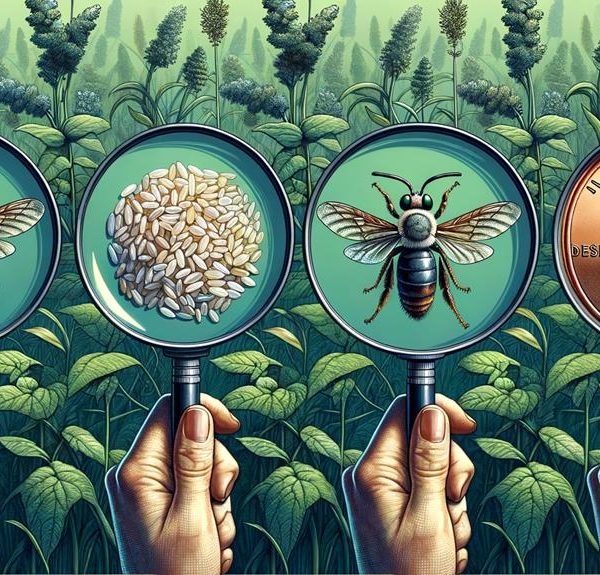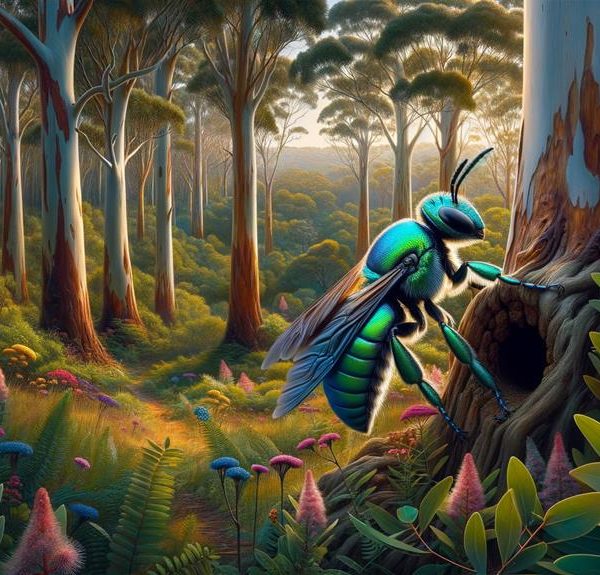Start your journey to lure the visually stunning Neon Cuckoo Bees into your backyard with our comprehensive and intriguing guide.
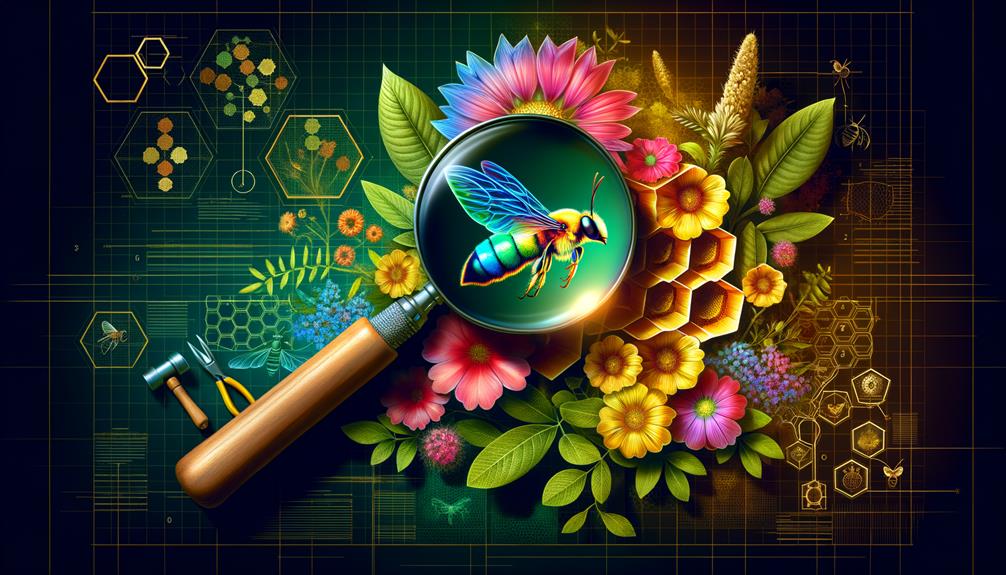
How to Get Neon Cuckoo Bee?
Of course, because who wouldn't want to wake up to a buzzing Neon Cuckoo Bee in their backyard? The enthralling beauty of these bees with their metallic blue and green bodies is undeniably irresistible.
But you can't just snap your fingers and expect them to appear. It's a process. You'll need to understand their habitat, gather essential supplies for beekeeping, and learn the steps to attract these captivating creatures.
Ready to transform your backyard into a haven for these mesmerizing insects? Let's explore the details.
Understanding Neon Cuckoo Bee Habitat
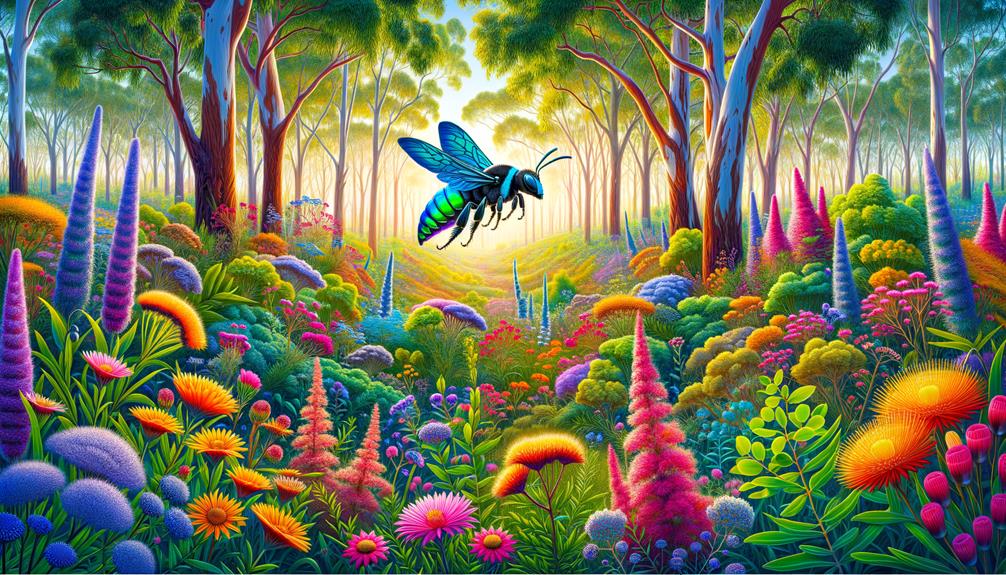
Before you can successfully attract a Neon Cuckoo Bee, it's crucial to fully understand their natural habitat, which predominantly consists of warm, dry environments with abundant flowering plants. These bees are native to Australia, where they thrive in conditions that provide an ample supply of nectar and pollen, their primary food sources.
In terms of specific locations, you'll often find Neon Cuckoo Bees in suburban gardens, parks, and woodland areas. They're particularly attracted to open, sunny spaces where flowers are abundant. These bees are solitary creatures, so they don't live in hives or colonies like other bees. Instead, they prefer to nest in pre-existing tunnels or crevices, often those created by other bees.
When it comes to temperature, Neon Cuckoo Bees favor a balmy climate. They're active during the warmer months, typically from spring to late summer. You'll rarely see them when temperatures drop, as they tend to enter a dormant state during the cooler months.
Understanding these factors is essential in creating an environment that's conducive for Neon Cuckoo Bees. By replicating these conditions, you'll increase your chances of attracting these fascinating creatures. However, remember that attracting these bees requires patience and a deep appreciation for their unique habits and preferences.
Essential Supplies for Beekeeping
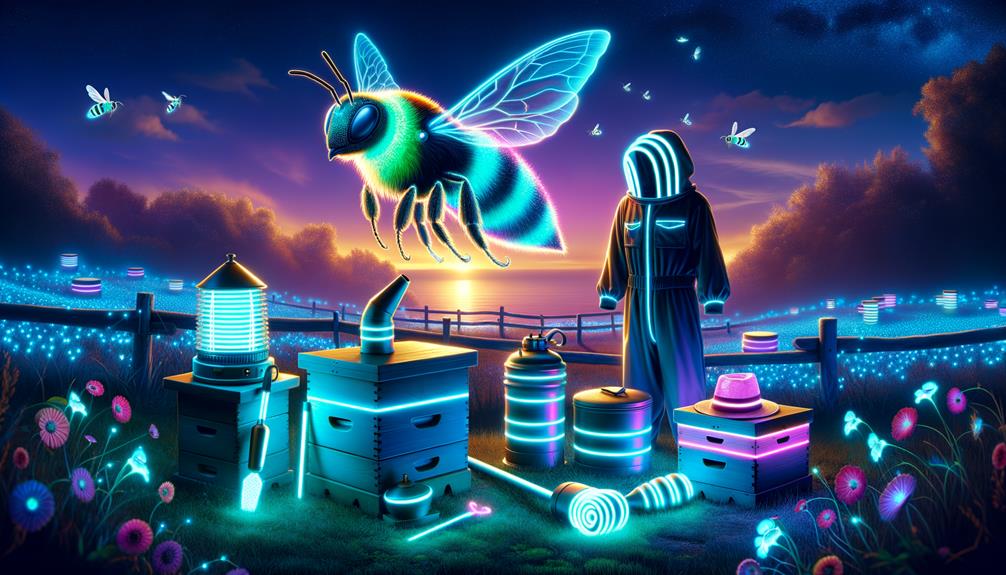
Delving into the world of beekeeping, you'll need to equip yourself with some essential supplies to effectively attract and support Neon Cuckoo Bees in your chosen setting. It's not just about having a hive; your toolkit must include protective gear, a smoker, a hive tool, and a bee brush.
Protective gear, including a bee suit, gloves, and a veil, are non-negotiables. They'll protect you from stings and allow you to confidently approach your hive. A smoker is an invaluable tool used to calm the bees and reduce aggressive behavior, making hive inspections safer. A hive tool, a kind of multipurpose beekeeper's swiss army knife, assists in opening the hive, separating frames, and scraping off excess propolis or wax.
The bee brush, a soft bristle brush, is used to gently sweep bees off frames during hive inspections. It's important to use a brush specifically designed for beekeeping to avoid harming the bees.
In addition to these tools, you'll need a high-quality bee hive, designed to mimic the natural nesting sites of Neon Cuckoo Bees. It's crucial to choose a hive that promotes healthy bee behavior while providing you with easy access for management and observation.
Steps to Attract Neon Cuckoo Bees
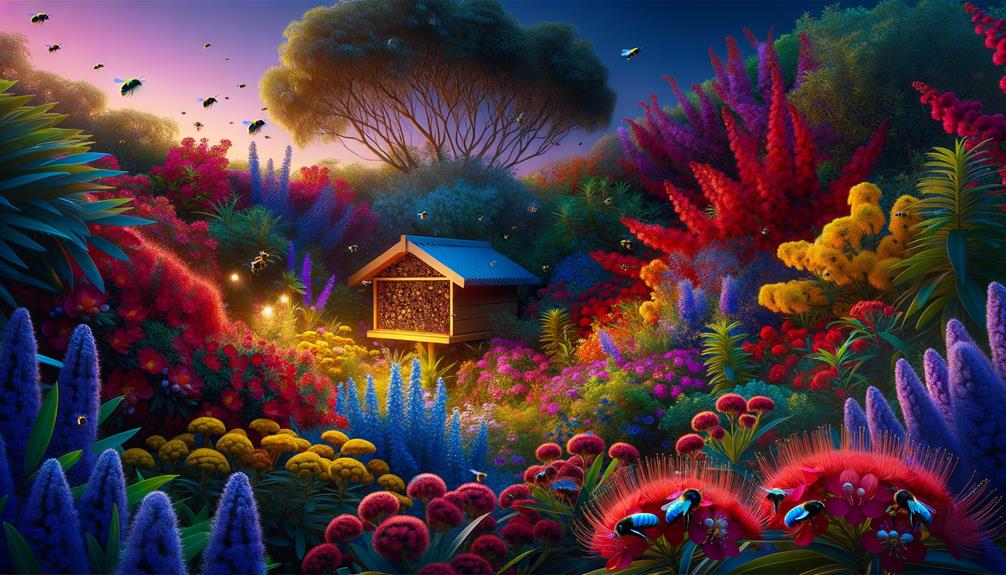
In your pursuit to attract Neon Cuckoo Bees, you'll need to follow several crucial steps, each carefully designed to mimic their natural habitat and meet their specific needs.
The first step is to plant blue and purple flowers, as these are the ones they're most attracted to. Make sure to choose plants that bloom during the day, when these bees are most active.
Next, create a suitable nesting environment. Neon Cuckoo Bees are solitary creatures, preferring to nest in hollow stems or holes in the ground. Therefore, leaving bare, undisturbed patches of ground or installing bee condos (small wooden blocks with drilled holes) in your yard can create inviting nesting sites.
Observing and Collecting Legally
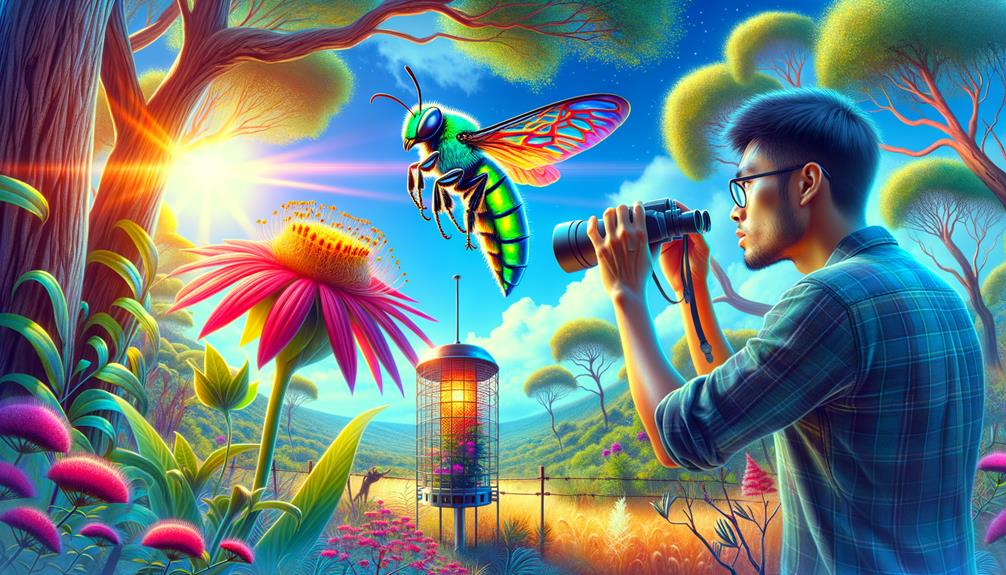
Once your garden is buzzing with Neon Cuckoo Bees, you might be tempted to observe these fascinating creatures up close or even collect some specimens, but it's essential to remember that there are legal considerations in place to protect them.
- Check Local Laws: Before you start observing or collecting, ensure that you're not breaking any local or national laws. Some regions have strict regulations about disturbing or collecting wildlife.
- Permits and Licenses: If it's legal in your area, you may need a permit or license to collect these bees. It's important to apply for this and wait for approval before you proceed.
- Follow Ethical Guidelines: Even if it's legal to collect, you should follow ethical guidelines. This includes not causing undue stress or harm to the bees, and not disrupting their ecosystem.
- Record Keeping: Keep accurate records of your observations or collections. This could include the date, location, and any notable behaviors. This information might be useful for researchers studying these bees.
Caring for Your Neon Cuckoo Bee
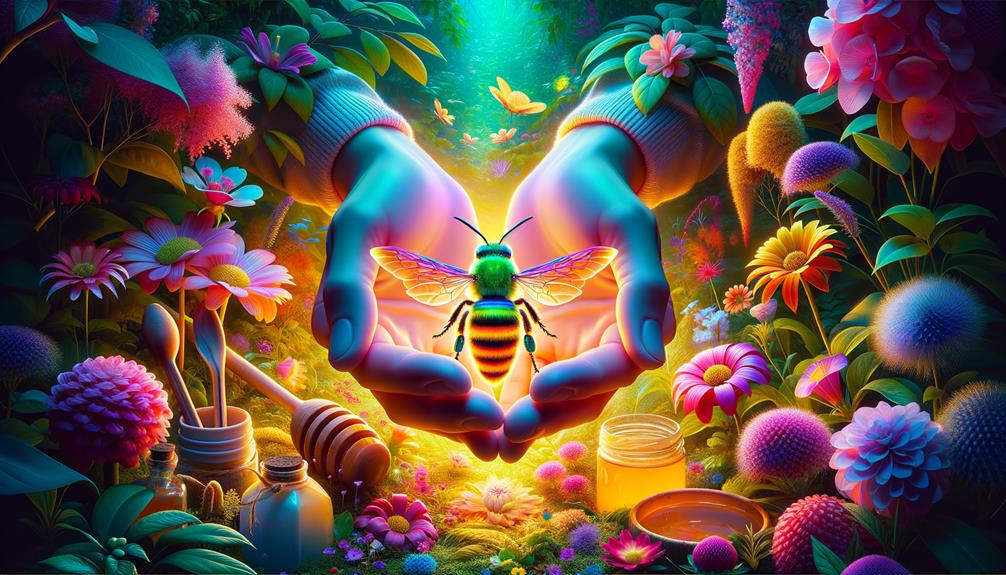
Nurturing your Neon Cuckoo Bee requires a keen understanding of their needs and behaviors, including appropriate feeding, housing, and maintaining a conducive environment. These bees are kleptoparasites, meaning they don't collect pollen themselves but rely on other bees' hard work. So, it's essential to house them near other bee habitats.
Here's a simple guide for their care:
Need | Care |
|---|---|
Feeding | Provide access to other bee species' nests |
Housing | Offer a bee house with small bamboo tubes or hollow reeds |
Environment | Maintain a garden with diverse native plants |
Temperature | Ensure a warm climate, as they thrive in tropical and subtropical regions |
Health | Regularly check for pests and diseases |
Conclusion
In conclusion, attracting a Neon Cuckoo Bee isn't a walk in the park. You've got to understand their habitat, have the right supplies, and take legal steps in observing and collecting.
But with patience and careful nurturing, you'll eventually become a proud Neon Cuckoo Bee keeper.
Remember, your actions contribute to the preservation of these unique creatures, and in turn, the overall balance of our ecosystem.
So, happy beekeeping!

